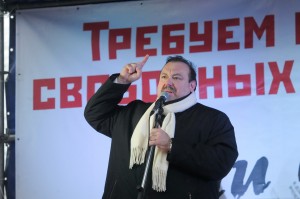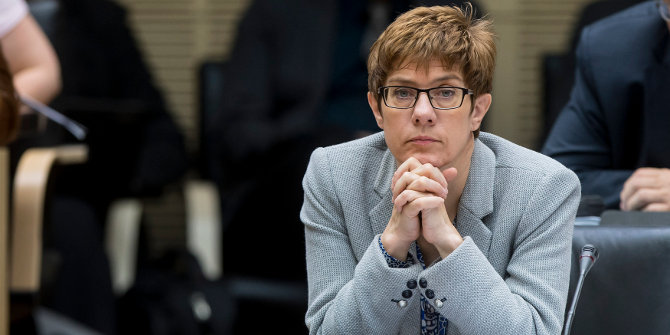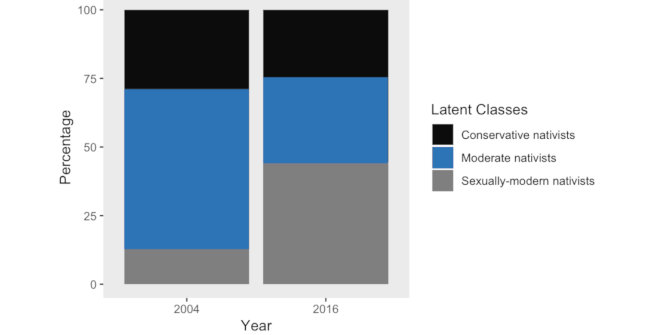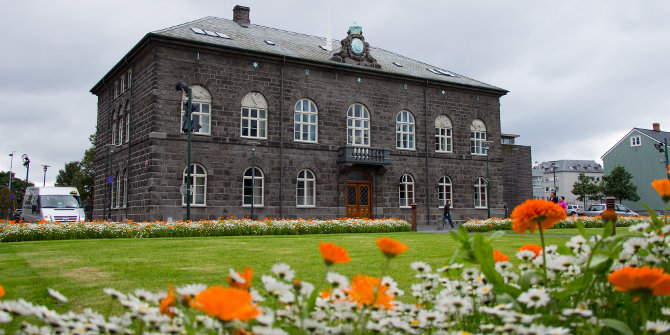 The past week has seen the ejection of opposition politician Gennady Gudkov from the Russian parliament and a 20,000 strong march in Moscow to protest against President Vladimir Putin’s rule. Mark Galeotti argues that these events are occurring against the backdrop of an opposition in Russia that has an emerging leftist agenda and that has begun to articulate its own policies. If the opposition movement can overcome the inevitable tensions and divisions over its developing policies, then it may find greater success in connecting with the disgruntled portions of the Russian population.
The past week has seen the ejection of opposition politician Gennady Gudkov from the Russian parliament and a 20,000 strong march in Moscow to protest against President Vladimir Putin’s rule. Mark Galeotti argues that these events are occurring against the backdrop of an opposition in Russia that has an emerging leftist agenda and that has begun to articulate its own policies. If the opposition movement can overcome the inevitable tensions and divisions over its developing policies, then it may find greater success in connecting with the disgruntled portions of the Russian population.
On Friday, as expected, outspoken opposition politician Gennady Gudkov was stripped of his parliamentary seat. On Saturday, perhaps 20,000 marched in Moscow to demand an end to President Putin’s rule. The Kremlin, however, seemed unmoved. Putin’s spokesman suggested that the president had been too busy to follow the protests and beyond the brief arrest of ultra-leftist Sergei Udaltsov – something of a ritual at such events – even the forces of order seemed relaxed. Not surprisingly, the Western media likewise gave it less attention than previous marches. With the bloody events in Benghazi still dominating the news, another protest, with smaller crowds, fewer celebrities and no violence hardly seemed a big deal.

However, I would suggest that there are signs of significant change within the protest movement, developments which could be game changers in the struggle for Russia’s future. First of all, an opposition which hitherto had been just that, defined by what it was against (Putin, corruption, the political system), began tentatively to address the question of what it was for. To a large extent this was pushed by the leftist wing of the inchoate coalition and the result was a broad social justice agenda, touching on everything from free healthcare to trade union rights. Until now, the largely liberal, centrist opposition leaders have been hesitant about articulating any actual policies which might divide their still-fragile movement. They avoided splits, but at the cost of failing to connect with the disgruntled portion of the Russian population – maybe even a silent majority – whose concerns are intensely practical.
It is no accident that these protests on the one hand saw a greater representation from the Communist Party (KPRF) and on the other were boycotted by the liberal Yabloko party and were not attended by high-profile figures such as billionaire Alexander Prokhorov and former finance minister Alexei Kudrin. They remain cautious figures, willing to stand against the Kremlin today but not ruling out some deal tomorrow. The current line-up of leaders may have less star-appeal (and personal fortunes) but perhaps as a result are more radical, determined and focused on their mission.
It is also no coincidence that the new leftist, social justice agenda emerges as Russia heads into campaign season for local and regional elections in October and the opposition plans a poll to choose a coordinating committee. Past experiences in mayoral elections in the cities of Yaroslavl and Tolyatti have shown that opposition candidates can win when they concentrate on bread-and-butter local issues, placing them within a wider context. As one opposition sympathiser told me during the March presidential vote, “corruption doesn’t matter to people until you can show them that it’s to blame for the cracked road outside their house.”
Although there is a distinct lack of clear direction from the Kremlin, there is no doubt that behind its blasé exterior, it is uneasy about these new developments. One reason the protests were relatively small is the existence of a new climate of intimidation. The Pussy Riot trial, new laws against unauthorized protests and warnings that the police expected “provocations” all played their part. So too did a massive mobilization of coercive force. Although the march was officially capped at 25,000 in Moscow, the authorities deployed 7,000 police and security troops, a higher police-to-protester ratio than for past events.
Now the opposition is talking about real policies, a debate which will inevitably lead to splits and tensions but from which will emerge real politics. The opposition movement which emerges is likely to be less hipster, more conventionally leftist and quite possibly tinged with nationalism (as Russian leftism so often is). One interesting sight on Saturday was a greater proportion of uniformed military personnel taking part, as well as a growing split between nationalist groups, some of whom are siding with the opposition just as others challenge it. There may even be a split within the KPRF. Veteran leader Gennady Zyuganov – a canny politician, but one who takes his status as titular head of the opposition much too seriously to challenge the Kremlin – might be forced to act more vigorously, lose his position or see his Party fragment. It is telling that the scale of their involvement in the protest led to serious internal rows within the KPRF. The Communists have the only nation-wide political machine not in the Kremlin’s pocket and if even a portion of this defects to the opposition, then that would be a serious gain for them.
So, the march may have been smaller, the mood more sombre, the character of the protests less comfortable for the West. However, the prospect that the opposition is finally coming to terms with the detail of politics and the need to move beyond occasional street pageants suggests that tectonic shifts may be taking place within Russian politics.
Please read our comments policy before commenting.
Note: This article gives the views of the author, and not the position of EUROPP – European Politics and Policy, nor of the London School of Economics.
Shortened URL for this post: http://bit.ly/V842TJ
____________________________________
 Mark Galeotti – New York University
Mark Galeotti – New York University
Mark Galeotti is Professor of Global Affairs and the chair of the SCPS Center for Global Affairs at New York University, as well as an associate member of its History and Russian & Slavic Studies departments. He works on modern Russian politics and security affairs with a particular interest in crime and corruption, especially showcased in his blog, In Moscow’s Shadows. His most recent book was the edited collection The Politics of Security in Modern Russia (Ashgate, 2010) and he is currently working on a history of Russian organised crime for Yale University Press. He blogs at In Moscow’s Shadows.





